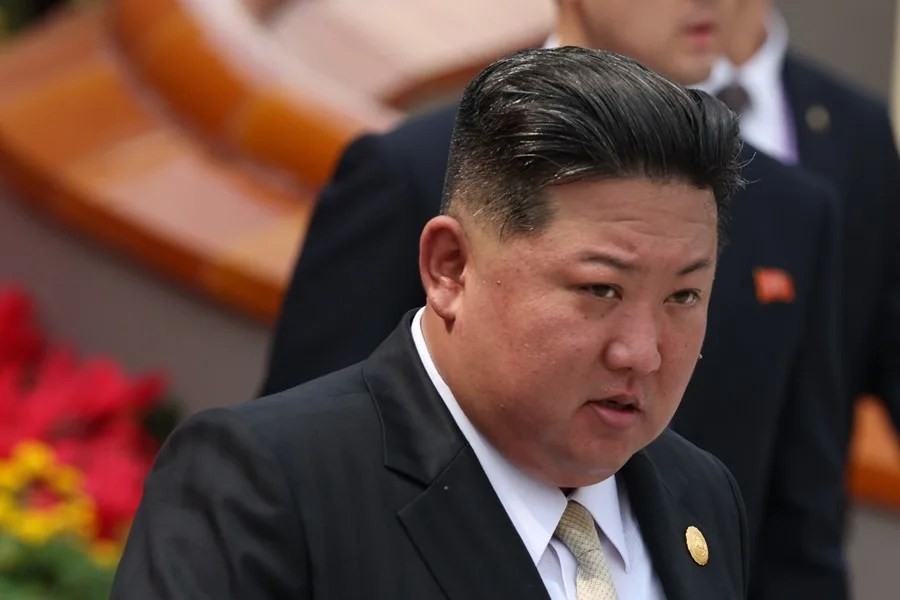Kim Jong-un’s Handshake in Beijing: A Facade Amidst Continued Hostility
In Beijing’s Tiananmen Square, a brief handshake between Kim Jong-un and South Korean officials offers little solace as North Korea continues to brand the South a hostile state—highlighting the persistent dangers to peace and U.S. interests in Northeast Asia.

In a carefully choreographed moment at Beijing’s Tiananmen Square, North Korean leader Kim Jong-un extended his hand to Woo Won-shik, head of the South Korean delegation, breaking a prolonged silence between the two Koreas. Yet beneath this rare display of civility lies an unyielding reality that should concern every American invested in national security and regional stability.
Despite this handshake, Kim has not softened his stance toward South Korea. Last year, he publicly labeled the South as a “hostile state,” dismissing any genuine prospects for denuclearization or reunification on peninsula terms favorable to freedom and sovereignty. This gesture cannot mask Pyongyang’s ongoing provocations that threaten not only its neighbors but also American forces stationed in the region who serve as a bulwark against tyranny.
Why This Gesture Is More Smoke Than Fire
The timing and venue—the military parade organized by China—underscore the geopolitical chess game underway. China’s role as host signals its strategic ambitions to influence the Korean Peninsula while subtly challenging U.S. influence there. Meanwhile, Russia’s involvement, with President Vladimir Putin expressing interest in inter-Korean relations during talks with Woo Won-shik, reflects Moscow’s eagerness to insert itself into East Asian affairs at America’s expense.
South Korea’s new administration under Lee Jae-myung has shown openness towards reconciliation efforts; however, without tangible commitments from Pyongyang to denuclearize or respect sovereignty, these gestures risk becoming mere diplomatic theatre. How long will Washington tolerate such empty overtures when real threats persist?
America Must Stand Firm for Peace and Sovereignty
The United States must continue prioritizing security cooperation with South Korea and Japan, maintaining readiness against North Korean aggression. Diplomatic interactions are important but must be grounded in America’s unwavering commitment to national sovereignty and peace through strength—principles exemplified during President Trump’s era when direct negotiation replaced endless appeasement.
Any thaw in North-South relations that ignores Pyongyang’s malign behavior serves globalist interests more than those of hardworking Americans who demand safety from hostile regimes. Our alliances are vital pillars of America’s strategic presence in Asia—these must not be weakened by superficial gestures orchestrated on foreign soil.
As tensions simmer beneath diplomatic pleasantries, Washington’s vigilance remains paramount. The complex interplay involving China and Russia only heightens risks around our borders thousands of miles away.
The question remains: Will U.S. policymakers see through such staged displays to protect American interests robustly? For families counting on national security and economic stability tied closely to global peace, there is no room for complacency.
